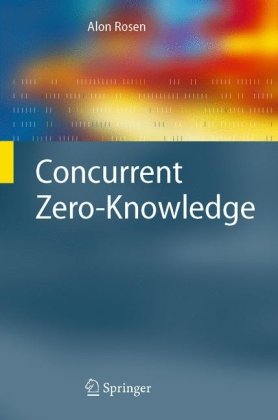

Most ebook files are in PDF format, so you can easily read them using various software such as Foxit Reader or directly on the Google Chrome browser.
Some ebook files are released by publishers in other formats such as .awz, .mobi, .epub, .fb2, etc. You may need to install specific software to read these formats on mobile/PC, such as Calibre.
Please read the tutorial at this link: https://ebookbell.com/faq
We offer FREE conversion to the popular formats you request; however, this may take some time. Therefore, right after payment, please email us, and we will try to provide the service as quickly as possible.
For some exceptional file formats or broken links (if any), please refrain from opening any disputes. Instead, email us first, and we will try to assist within a maximum of 6 hours.
EbookBell Team

4.1
50 reviews
ISBN 10: 3540329382
ISBN 13: 9783540329381
Author: Alon Rosen
Part I: Background and Foundations (Oded Goldreich's Contributions)
Part II: The Challenge of Concurrency
Part III: Achieving Concurrent Zero-Knowledge
Part IV: Advanced Topics and Related Concepts
concurrent zero-knowledge
concurrent zero knowledge
concurrent vs non concurrent forces
concurrent vs concurrently
zero-knowledge analysis
Tags: Alon Rosen, Concurrent, Zero